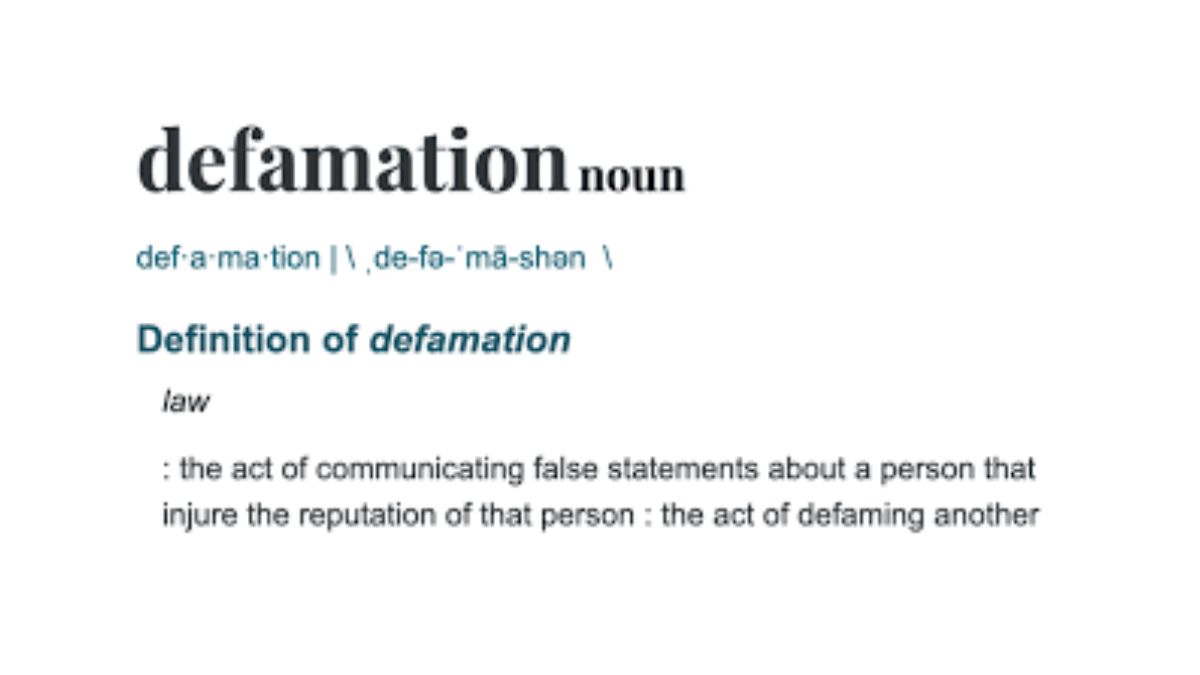The legal concept of “defamation of character” relates to the act of spreading false information about someone in order to damage their reputation. Defamation is much more likely to occur in today’s globally linked and instantaneously sharing environment. Defamation, its effects on individuals and society, and the legal protections available are all discussed in this article.
Defamation of character poses significant risks to individuals, their relationships, and their livelihoods. Understanding the elements of defamation, available defenses, and legal remedies is crucial in protecting one’s reputation. While freedom of speech is essential, responsible communication and adherence to truth are vital to preventing harm caused by defamation. It is in society’s best interest to promote an environment where individuals are encouraged to express opinions honestly without crossing the line into falsehood and reputational harm.
Understanding Defamation
A. Definition and Types of Defamation
False statements made about another person or organization might be considered defamation. There are two types of this: libel and slander. Defamatory statements uttered verbally are slanderous, while written ones are libelous.
B. The Importance of Reputation
What we are known for in the eyes of the general public is our reputation. One’s reputation can make or break their social and professional position, as well as their ability to make and keep friends. Reputational harm can have far-reaching effects, including interpersonal difficulties, career setbacks, and mental anguish.
Elements of Defamation
A. False Statements
The plaintiff in a defamation case has the burden of demonstrating that the defendant’s words were false. Free speech protects one’s right to express an opinion, but assertions presented as facts must be demonstrably untrue to be considered defamatory. Differentiating between statements of opinion and assertions of truth is essential.
B. Harm to Reputation
Reputational injury is a necessary element of defamation. A person’s social, professional, or communal status might be harmed by false remarks if they cause others to have a negative impression of them. Demonstrating the detrimental effects on one’s life and connections is essential in proving reputational harm, which can be difficult.
Defenses Against Defamation
A. Truth as a Defense
Defamation lawsuits can be severely weakened by the use of the truth as a defense. A comment about an individual cannot be considered defamatory if it turns out to be accurate. The onus of proof for the veracity of the defendant’s claims rests on the defendant.
B. Privilege and Immunity
A person’s right to sue for defamation may be limited in certain circumstances. Statements made in a legislative or judicial session, for example, are protected by qualified privilege because they are considered to be in the public interest. Statements made by judges during court proceedings, for example, are protected against defamation charges under the doctrine of absolute privilege.
Legal Remedies for Defamation
A. Civil Actions
Defamed parties can file civil lawsuits in order to obtain redress. In most cases, this means taking legal action against the person who spread the slander. Compensatory damages are intended to repair the plaintiff’s reputation and financial losses, whereas punitive damages are meant to deter future bad behavior by the defendant. To stop the spread of defamatory statements, injunctive action may be sought in particular situations.
B. Criminal Liability
Although defamation is often dealt with in civil court, there are some places where it is a criminal offense. If you are found guilty of defaming another person, you could face criminal penalties under these statutes. The potential stifling impact of criminal defamation laws, however, prompts serious considerations about striking a fair balance between these two competing values of society.
Conclusion
Defamation of character, their relationships, and their livelihoods are all at danger when someone spreads false information about them. It is essential to one’s reputation to be familiar with the elements of defamation, possible defenses, and legal remedies. While the right to free expression is crucial, so too are truthfulness in communication and a commitment to protecting others from the damage that can result from slander. Creating a culture where people feel safe sharing their thoughts without resorting to outright lies or damaging their reputations is beneficial for everyone.
Individuals, their relationships, and their livelihoods are all at danger when someone spreads false information about them. It is essential to one’s reputation to be familiar with the elements of defamation, possible defenses, and legal remedies. The right to express oneself is crucial, but so is the obligation to communicate

